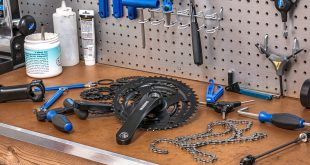After running a preview, on Friday, of a corporate responsibility report in Ethical Consumer magazine, BikeBiz.com has now obtained a copy of the October/November issue.
On the surface it makes for damning reading: the majority of the world’s bicycles are made in countries such as China, Vietnam, Thailand and Bangladesh; countries, according to the Ethical Consumer report, with records of workers’ rights abuses, including the use of child labour,
However, the report is weakened by poor research: Raleigh is said, wrongly, to be owned by Derby International (Derby went pop in 2001) and in the list of 17 global bike brands, micro-brands such as Whyte and Nirve are listed but biggies such as Specialized and Giant are not. Pacific Cycle’s GT, Mongoose and Schwinn get a brief mention in the body of the article – they are said to be "smaller independent brands" – but don’t feature in the list of 17 brands put through the magazine’s ethical audit.
Every bike company – including Burley – gets a black mark for environmental reporting, and only Dawes and Falcon get mini-plaudits for their employee codes of conduct.
The brands to fare the worst in the Ethical Consumer report are Apollo and Carrera, the house brands of Halfords, owned by CVC Capital Partners Europe Ltd. These brands get black marks in almost every category, including ‘pollution’, ‘oppressive regimes’, and, thanks to the chimps TV ad campaign, ‘irresponsible marketing.’
Halfords is also criticised for advertising in-car camera/radar detectors "which can help drivers being caught speeding," said Ethical Consumer’s report.
And CVC gets a beating too: it’s criticised for a £750m ‘private equity pool’ for Asia with Citigroup and is slammed for having a registered address in Jersey, "a known tax haven."
Ethical Consumer’s report – Two Wheels Good – is subtitled "Are bicycle manufacturers taking us for a ride?" The article said that "bicycles are just about the most sustainable form of transport available" but the "globalisation of bicycle manufacture…means that some brands are not as ethical as you may think."
Bangladeshi companies are said to employ many child workers who are "vulnerable to abuses by factory owners and managers." Child labour laws in Bangladesh are "rarely enforced," claimed Ethical Consumer.
Bicycles made in Indonesia were often part-manufactured by children, said Ethical Consumer. The magazine listed Apollo from Halfords as one of the bike brands made in Indonesia.
"[A] survey of 9000 factory units in Indonesia’s Medan province, conducted by Yayasan Pondok Rakyat Kreatif (YPRK) NGO, revealed about 3400 child workers, some of whom were employed in bicycle factories. One bicycle factory worker said they worked from 8am to 5pm, with one hours lunch break, and were given no eye protection, but had to buy their own medicine to ease subsequent eye irritation."
However, this survey was from 1993, and Ethical Consumer could find no evidence the practices are still continuing.
Evidence of worker abuse is more up to date for China, Ethical Consumer quotes a 2001 report from the International Labour Organisation which itself quotes from a report by the International Confederation of Free Trade Unions (ICFTU) that claims factory workers are "hit with iron bars by managers." Ethical Consumer offers this as a general claim about employee oppression in China, rather than a specific claim against a bicycle manufacturer.
This ICFTU report links bicycle manufacturing – and many other manufacturing industries – with the ‘Chinese Gulag’ Laogai ‘reform through labour’ programme, a form of forced labour. In foreign-backed factories producing bicycles – and other goods – for export, workers were commonly "confined to the employer’s premises, including mandatory residence in common housing on the grounds of the enterprise. Personal identification is confiscated on arrival and replaced with enterprise ID, which had to be handed to guards when leaving the grounds of the enterprise."
Ethical Consumer points readers to a website for the US/Canadian Boycott Made in China campaign, a ‘Free Tibet’ lobby group that claims there are an estimated 16-20m Chinese workers held in several thousand Laogai forced labour camps. Ethical Consumer quotes the Boycott Made in China campaign admitting that "although many of the goods on our shelves are not made through forced labour, a significant part of China’s export of manufactured goods originate from prisons and Laogai."
 BikeBiz Bicycle and cycling retail news
BikeBiz Bicycle and cycling retail news



